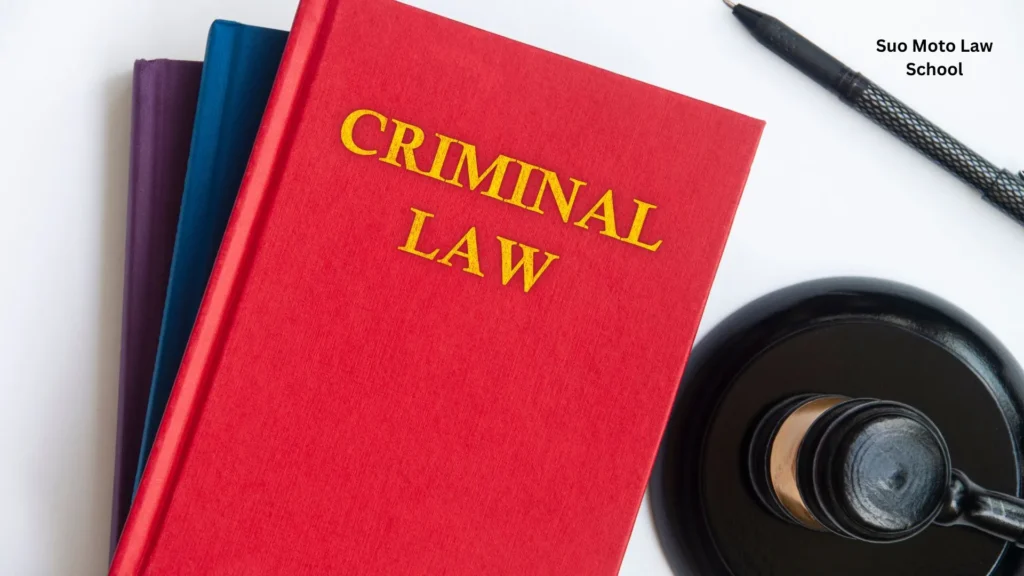In this article, you can learn about the classification of offenses, legal procedures, and key terms in the Code of Criminal Procedure 1898.
Offense
The term offense under the Code of Criminal Procedure 1898 means any act or omission made punishable by any law for the time being in force. It is generally synonymous with crime, which may be described as an act or omission, the commission of which may hold the person responsible for punishment.
Classification of Offences
For investigation purposes, offenses are of two kinds under the Code of Criminal Procedure 1898. One is a cognizable offense, and the other is a non-cognizable offense. Bailable and non-bailable are the kinds for granting bail.
Cognizable Offence
This is the kind of offense for which a police officer may, in accordance with law, arrest any person who has done any offense without a warrant.
Non-cognizable Offence
Those offenses for which a police officer can’t arrest any person without a warrant are non-cognizable offenses.
Bailable Offence
It means an offense shown as bailable in the second schedule of the Code of Criminal Procedure as bailable or mentioned in any other law as bailable. When any person has done any offense and the court is bound to give him bail is a bailable offense. In the case of a bailable offense, bail is the right of the offender, and the court can’t deny granting bail. Though the Code of Criminal Procedure 1898 does not contain any specific provision for granting anticipatory bail, the High Court can grant such bail.
Non-bailable Offence
An offense for which the offender is not allowed to bail is called a non-bailable offense. However, the judge has discretionary power either to grant or deny bail in case of non-bailable offenses.
First Information Report
The ‘First Information Report’ is a written document prepared by the police when they receive information about the commission of a cognizable offense. It is in fact a report of information, by whomsoever given, it to the officer in charge of a police station in relation to the commission of a cognizable offense and which is first in point of time and on the strength of which the investigation into that offense is commenced.
When a magistrate directs the police to enquire into the complaint of a cognizable offense, of which no previous information has been laid before the police, the written information sent by the magistrate to the police will be treated as the FIR.
Complaint
Generally, the term complaint means a statement of facts of a case made by the person aggrieved in commencing proceedings before a magistrate. It is in fact the allegation made orally or in writing to a Magistrate, with a view to his taking action against the offender. It does not include the report of a police officer.
An allegation can be made orally or in written form. However, it has to comply with four conditions according to the Code of Criminal Procedure 1898.
- The allegation must be made to a Magistrate.
- The allegation must be made with a view to the Magistrate’s taking action.
- The allegation must assert that some person, whether known or unknown, has committed an offense; and
- It must not be a police report as defined in the Code.
A complaint need not necessarily be made by the person injured of affected by the offense, but may be made by any person aware of the offense.
Inquiry
The word inquiry is meant to include everything done in a case by a Magistrate whether a case has been challaned or not. It relates to proceedings or Magistrate prior to trial and includes every inquiry, other than a trial, conducted by a Magistrate or court. In the case of State vs Ministry of Public Administration (2015), the Appellate Division observes that an inquiry is always made by a magistrate or any person as may be directed by the court.
Investigation
It means search for materials and facts in order to find out whether or not an offense has been committed. The term investigation consists of the following steps —
- Proceeding to the spot.
- Ascertainment of the facts and circumstances of the case.
- Discovery and arrest of the suspected offender.
- Collection of evidence relating to the commission of the offense.
- Formation of the opinion whether or not there is a case to place before the Magistrate.
Final Report
The phrase ‘final report’ refers to that document which records the conclusion arrived at by the police after the investigation process. When after holding an investigation it appears to the police officer making the investigation that there is no sufficient evidence or reasonable ground of suspicion to justify the forwarding of the accused to the Magistrate, he must give a clear statement of the case in the police report together with reasons for not sending up any person for trial.
Charge Sheet
A charge sheet is the final investigation report submitted by the investigating officer or agencies to the Magistrate for proving an offense in the criminal court. The charge sheet, also acts as report that informs the Magistrate that on investigating the offense sufficient evidence was found for the court to go further in the case and inquire into the offense. A charge sheet is to be submitted when there is sufficient evidence against the accused person.
Trial
The term trial is applicable only where there has been an offense and is the determination of the issue between the state and the accused whether the latter is guilty of the offense charged against him.

